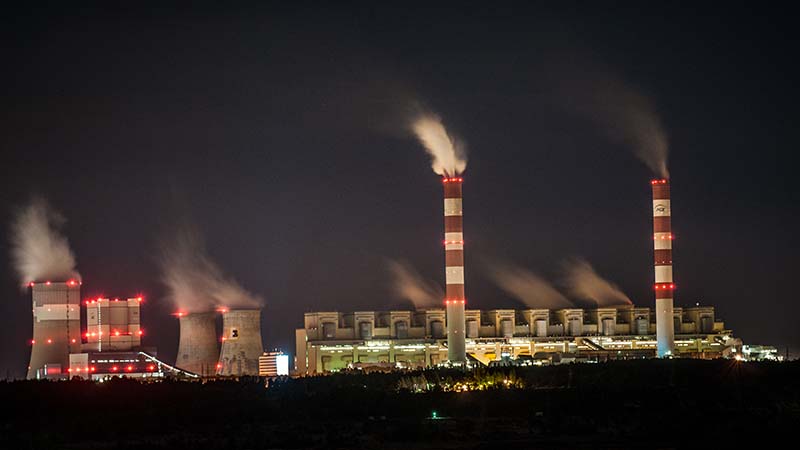Belchatow, Poland, to close in 2027. Neurath, Germany, to burn its last lump of lignite in 2029 or 2030.
That is what meeting the climate goals world leaders agreed in Paris means for the EU’s biggest coal power stations, according to a report by Climate Analytics.
To hold global warming “well below 2C”, the 28-state bloc needs to smash dependence on this carbon-intensive fuel by the end of next decade, the consultancy argues.
“A global phase-out of coal is the first, most cost-effective intervention that has to occur for a 1.5C or 2C pathway,” said Michiel Schaeffer, science director at Climate Analytics.
“However, that fact alone does not mean that it is everywhere politically or socially desirable. The effect that we hope for is to inform the debate.”
Countries including the UK, Finland and France have set end dates for coal power generation by 2030.
Lawmakers in the Netherlands are debating a phaseout date for the country’s last five coal plants, including some that only opened in 2015.
“I would like to shut down all coal centres, and I think it’s not a question of if, but when,” the country’s climate minister Sharon Dijksma told Climate Home.
Others are more reluctant. Germany and Poland, collectively responsible for more than half of EU coal emissions, face the biggest political obstacles.
For all its embrace of renewables, Germany still generates 40% of its power from coal. Calls for a phase-out timeline have met resistance from mining unions and companies.
Top economics official Rainer Baake told a conference this week half the country’s coal plants must retire by 2030, Clean Energy Wire reported – falling short of the Climate Analytics proposal.
Poland, which has more than 80% coal in the electricity mix, is even expanding its fleet. Despite winning various carve-outs from EU climate rules, Warsaw is threatening to challenge the carbon-cutting package in court, Reuters reported this week.
Alison Tate, climate expert at the International Trade Union Confederation, told Climate Home governments needed to help communities through the transition.
“Workers want to have a sense of hope and they want to have jobs on a living planet,” said Tate, who is speaking at the report launch on Thursday. “Unions are really serious about ensuring there are decent work opportunities in sectors that will help to reduce carbon emissions.”
Report: UK emissions have fallen 38% since 1990 on coal closures
The Climate Analytics report sets a carbon budget for EU coal of 6.5 gigatonnes CO2 by 2050, in line with the Paris goal to hold global warming “well below 2C”.
If existing EU plants run for their full economic lifespan, they will exceed this budget by 85%, analysts find. Eleven in the pipeline will take emissions to almost double Paris-compatible levels, with some operating into the second half of the century.
Pumping flue gases from coal plants underground could in theory mitigate their climate impact, but the model does not assume this will happen on a large scale, given slow progress to date on commercialising carbon capture technology.
The report sets out two potential schedules the EU’s coal endgame: one guided by market principles, with the least economic plants leaving the system first; the other targeting the highest emitting plants for early closure.
“Between those perspectives, there is a huge overlap,” said Schaeffer, suggesting a degree of predictability for investors and policymakers.
Weekly briefing: Sign up for your essential climate politics update
